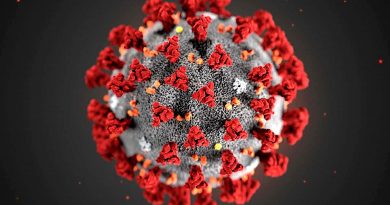AstraZeneca and Oxford University agree to globalise COVID-19 vaccine
UK-headquartered AstraZeneca and Oxford University announced an agreement to develop and distribute the university’s future recombinant adenovirus vaccine to prevent COVID-19 SARS-CoV-2 infection globally.
The partnership aims to introduce COVID-19 patients to the future vaccine, known as ChAdOx1 nCoV-19, developed at the University of Oxford by the Jenner Institute and Oxford Vaccine Project. Under the agreement, AstraZeneca will be responsible for the vaccines global development, production and commercialisation.
Globalisation of the Oxford ChAdOx1 COVID-19 vaccine
The collaboration is set to enable global development, manufacturing and distribution of the vaccine.
Pascal Soriot, Chief Executive Officer, AstraZeneca, said:
“As COVID-19 continues its grip on the world, the need for a vaccine to defeat the virus is urgent. This collaboration brings together the University of Oxford’s world-class expertise in vaccinology and AstraZeneca’s global development, manufacturing and distribution capabilities. Our hope is that, by joining forces, we can accelerate the globalisation of a vaccine to combat the virus and protect people from the deadliest pandemic in a generation.”
Last week, the potential COVID-19 vaccine entered clinical Phase I studies to analyse safety and efficacy among healthy volunteers aged 18-55, across five research centres in Southern England. Next month, data from the Phase I trial is expected to be released. Progress to late-stage trials will also be made by the middle of this year.
Professor Sir John Bell, Regius Professor of Medicine at Oxford University, said:
“Our partnership with AstraZeneca will be a major force in the struggle against pandemics for many years to come. We believe that together we will be in a strong position to start immunising against coronavirus once we have an effective approved vaccine. Sadly, the risk of new pandemics will always be with us and the new research centre will enhance the world’s preparedness and our speed of reaction the next time we face such a challenge.”
About the ChAdOx1 nCoV-19 vaccine
Developed at the Jenner Institute at the University of Oxford, in collaboration with the Oxford Vaccine Group, ChAdOx1 nCoV-19 uses a viral vector based on a modified attenuated version of the common cold (adenovirus) containing the SARS-CoV-2 spike protein genetic code. After vaccination, the surface spike protein is generated which, if it later infects the body, primes the immune system to fight COVID-19.
The recombinant adenovirus vector (ChAdOx1) was selected to produce a high immune response from a single dose and it is not replicating so it can not cause a continuing infection in the person being vaccinated. To date, vaccines made from the ChAdOx1 virus have been given to over 320 people and have been proven to be safe and well-tolerated, although they may cause transient side effects such as temperature, flu-like symptoms, headache or a sore arm.
More about AstraZeneca
AstraZeneca (LSE / STO / NYSE: AZN) is a global, science-driven pharma and biopharmaceutical organisation centred on the research, development and commercialisation of prescription drugs, mainly for the treatment areas of oncology, cardiovascular, Renal and Metabolism, and Respiratory and Immunology.
Based in Cambridge, UK, AstraZeneca works in over 100 countries, and millions of people worldwide use its groundbreaking medicines.
For more info please visit astrazeneca.com





